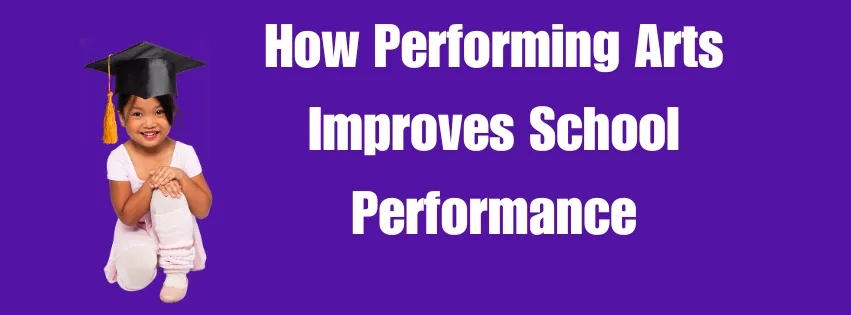
How Performing Arts Improves School Performance
How Performing Arts Improves School Performance
At first glance, dance and drama may seem worlds apart from maths and reading. But at Steps 2 Stardom, we’ve seen again and again how the performing arts give children a leg up not just on stage—but in the classroom too.
Whether your child is twirling in ballet, grooving in hip hop, mastering a drama monologue, or flying through the air in acro, the benefits of performing arts reach far beyond the studio.
Here’s how different styles offered at our Narellan studio help kids thrive academically and emotionally.
1. Focus and Discipline Across All Styles
Every class—whether it’s jazz, ballet, or drama—requires listening, focus, and routine. Students follow instructions, concentrate on timing and coordination, and build discipline as they progress through class each week.
This ability to stay focused and follow multi-step processes directly supports classroom learning, especially in subjects that require attention to detail and structured thinking.
2. Memory and Brain Training
Dance is like physical maths: children must remember sequences, counts, spatial patterns, and formations. Whether they’re learning a tap routine, acro trick combo, or lines for a drama script in Set the Scene, they’re strengthening both memory and recall.
This builds cognitive agility—making it easier to retain spelling words, maths strategies, and school assignments.
3. Confidence to Participate
One of the most noticeable changes we see in our students is their self-confidence. Regularly performing, speaking, or simply participating in class helps students overcome shyness and feel comfortable presenting in front of peers.
Whether they’re acting in a skit, singing in musical theatre, or dancing in front of an audience, our students gain the courage to raise their hand in class, speak up in group work, and approach learning with greater self-belief.
4. Creativity and Problem-Solving
Styles like lyrical, contemporary, and drama invite students to interpret music, emotions, and themes in their own unique way. Hip hop and musical theatre encourage improvisation and storytelling. Even structured forms like ballet allow for creative expression in movement and performance.
This creative confidence helps children approach academic problems with curiosity, originality, and resilience.
5. Time Management and Commitment
Balancing school with weekly dance and performing arts commitments teaches children how to manage their time, stick to schedules, and take responsibility for showing up prepared. These are essential life skills that carry over into school, homework routines, and future challenges.
6. Emotional Regulation and Resilience
Performing arts offer a safe outlet for kids to express big emotions—joy, frustration, fear, pride—and process them through movement and character work. Our students learn how to handle nerves, cope with mistakes, and bounce back after challenges.
Styles like acro and aerial arts teach perseverance; ballet teaches patience and precision; drama and contemporary explore empathy and emotional intelligence. All of this builds resilience and emotional wellbeing—crucial for handling school stress and peer interactions.
7. Social Skills and Teamwork
Dance and drama classes are a team sport. Students learn to take turns, share space, give positive feedback, and work together on performances. In our troupes, duos, and ensemble pieces, cooperation and trust are key.
These social skills naturally translate to better communication, collaboration, and group work at school.
8. Physical Health Boosts Mental Health
It’s well-documented that active children perform better in school. Regular movement boosts energy, sleep quality, and concentration. From the high-energy beats of jazz to the muscle control of ballet and acro, our classes provide a full-body workout that supports brain function.
And it’s fun! When kids enjoy their activities, they’re more likely to feel positive and motivated in other areas of life—including their learning.
Styles That Support Academic Growth at Steps 2 Stardom:
Ballet – discipline, memory, musicality
Jazz & Hip Hop – energy regulation, confidence, rhythm
Tap – pattern recognition, timing, coordination
AcroDance & Aerial Arts – resilience, physical control, determination
Modern Dance (Lyrical & Contemporary) – emotional expression, storytelling
Musical Theatre & Set the Scene – verbal skills, literacy, communication
Ballroom – teamwork, posture, musical awareness
Beyond the Studio
At Steps 2 Stardom, we empower every child to shine—not just under the lights, but in every area of their life. Through our inclusive, nurturing, and confidence-building classes, we help children build the life skills they need to succeed at school and beyond.
Ready to see how dance and drama can help your child grow?
Book a free trial class today and give your child the gift of confidence, creativity, and academic advantage.
